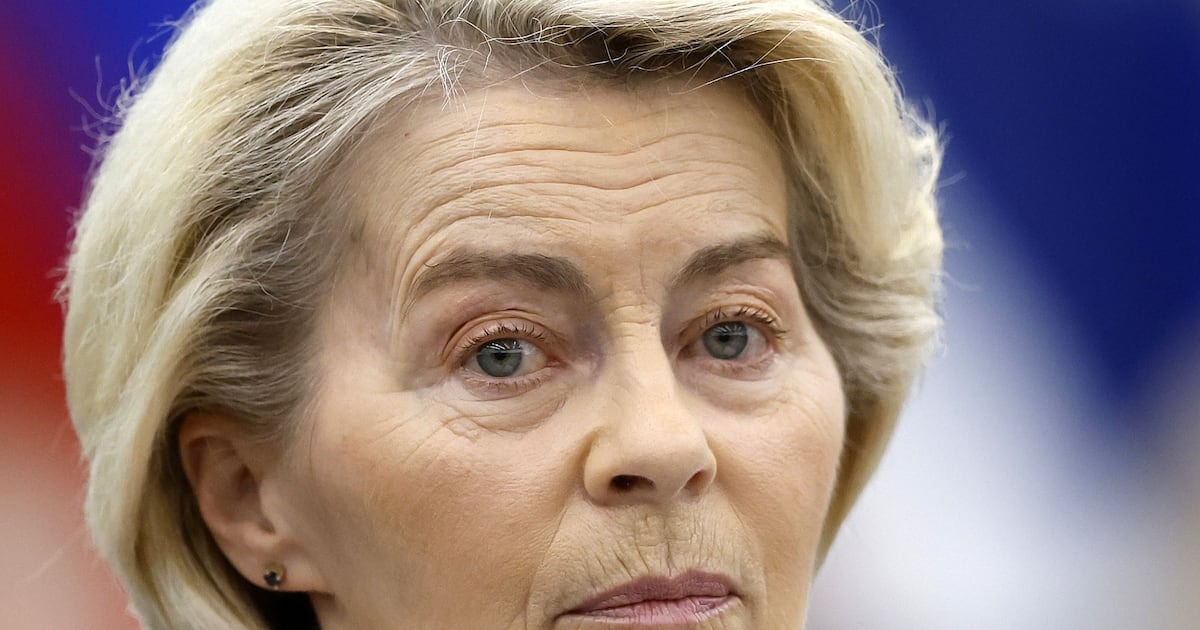The European Union is working “day and night” to finalise a deal with the United States, to head off steep tariffs on transatlantic trade, European Commission president Ursula von der Leyen has said.
Officials in the commission, who are leading the trade negotiations, believe an “agreement in principle” may be imminent, possibly as early as the coming days.
The two sides had been working towards a July 9th deadline set by US president Donald Trump, which he later extended to August 1st. Mr Trump had threatened that higher tariffs of 20 or even 50 per cent, would be charged on nearly all goods coming from the EU into the US, if a trade deal was not agreed by then.
High-level contacts between the commission and the Trump administration have picked up in recent days.
EU trade commissioner Maroš Šefčovič, who has been the main interlocutor with senior US officials, spoke to US commerce secretary Howard Lutnick on Tuesday, and was due to talk to trade representative Jamieson Greer on Wednesday.
The contacts follow a phone call between Dr von der Leyen and Mr Trump on Sunday, which the commission president said helped “move things forward”.
A relatively basic “agreement in principle” being worked out would see 10 per cent tariffs on products sold from the EU into the US since April remaining in place, with some possible exemptions for the aviation and spirits sector.
The “agreement in principle”, if signed off on by Mr Trump, would buy time for technical negotiations to continue, to iron out the more complex details of the future EU-US trading relationship, without the threat of steeper tariffs hanging over the discussions.
“We are working closely with the US administration to get an agreement,” Dr von der Leyen told the European Parliament on Wednesday.
The commission was working “day and night” to land a deal, the German politician said. “We are looking for a reliable framework from which we can keep building our common trade,” she said.
“We stick to our principles, we defend our interests, we continue the work in good faith, and we get ready for all scenarios,” she told MEPs.
[ Donald Trump says pharmaceutical tariffs could reach 200 per centOpens in new window ]
The deal may get over the line this week, despite the three-week extension, officials said.
“The United States has moved its deadline for finalising deals with partner countries to the 1st of August, however, we aim to reach a deal before then, potentially even in the coming days,” a commission spokesman said.
Separately, the European economy will still be expected to grow, but at a slower rate, should an EU-US trade deal lock in blanket tariffs of 10 per cent, the European Central Bank’s top economist Philip Lane has said.
Higher tariffs Mr Trump has threatened to levy on trade, in the event a deal was not agreed, would likely result in “a significant slow down” in Europe, he said.
Mr Lane, a former governor of the Central Bank of Ireland, said the ECB had examined the outlook if existing “universal” duties of 10 per cent charged on EU products, and higher rates on steel and cars sold to the US, remained in place.
“If that turns out to be more or less the destination for EU-US trade, we think the European economy will grow more slowly compared to the default of free trade, of what we had before,” he said.
“There is momentum in the European economy, we have employment growing, we have wages growing. We see consumption picking up now that interest rates have come down, we’re seeing investments pick up more than it was for the last couple of years,” he said.
Speaking in Brussels, Mr Lane said the outcome of US negotiations with Asian countries, where Mr Trump has threatened to levy tariffs of between 25 and 40 per cent, would have some “spill over” impact on the European economy.
